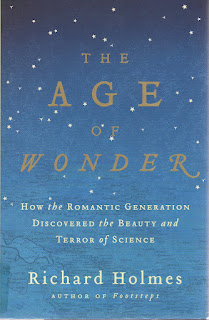Take a Chance: Pnin

Pnin , by Vladimir Nabokov
1: Staff Member’s Choice: Go to a bookstore or library that has a “Staff Picks” section. Read one of the picks from that section.
I did the last option first and the first option last! I had to cheat a bit on this one; the bookstore in my city doesn't have a Staff Picks section, but the library has a couple of troughs in the front with fiction and non-fiction. It's not exactly a Staff Picks section, but it's all I've got. I found Pnin in the fiction trough.
Pnin is not exactly a novel, nor is it quite a collection of short stories. The stories were originally published serially in The New Yorker , and written as a sort of antidote to the difficult work of writing Lolita . Professor Pnin is comical, hapless, confused, and noble. Like many ex-patriate Russians of his generation, he mourns a Russia that is completely gone, and he spends years searching for a place he can feel at home. Once he seems to reach his goal, it looks









